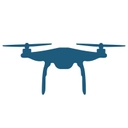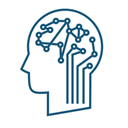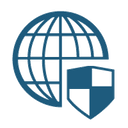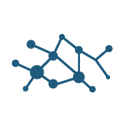ITIF Issue Areas
Clean Energy
Climate change is global, so a realistic clean energy policy must focus on ensuring that clean energy will be adopted globally. That requires accelerating innovation to ensure that clean energy can compete with dirty energy on both price and performance without ongoing subsidies or mandates. ITIF’s Center for Clean Energy Innovation exists to elevate this imperative in the policy debate and advance policy ideas to spur innovation in new clean energy technologies that can achieve price/performance parity (P3). We conduct research, provide nonpartisan analysis, generate policy proposals, and convene members of the analytical and policymaking communities with this mission firmly in focus.

Clean Energy Innovation:
Advancing policies to spur the green transition by boosting public and private investments in clean energy technologies that can reach price and performance parity with dirty energy.Innovation and Competitiveness
As nations engage in a race for global advantage in innovation, ITIF champions a new policy paradigm that ensures businesses and national economies can compete successfully by spurring public and private investment in foundational areas such as research, skills, and 21st century infrastructure. Our areas of focus include:

Antitrust:
How and why governments should craft regulatory policies that stimulate instead of inhibiting innovation and competitiveness—featuring the work of ITIF’s Schumpeter Project, which advances dynamic competition policy in which innovation is a central focus for antitrust enforcement.
Big Tech Policy:
Analyzing the role leading tech firms play in U.S. technological leadership and economic competitiveness, and raising awareness about domestic and international policies that unduly target U.S. tech firms with restrictive, exclusionary, or extractive regulations.
Defense and National Security:
Examining defense innovation issues, including weapons systems, innovation in defense and homeland security agencies, and the role of defense R&D in spurring innovation and competitiveness.
Economic Theory:
Assessing the negative impact of conventional neo-Keynesianism and neoclassical economics on the 21st century economy and promoting “Innovation Economics” as a sounder alternative.
Emerging Technologies:
Analysis of issues surrounding the development and adoption of transformative new technologies—from drones and advanced robotics to 3D printing and digital currencies.
Enterprise Policy:
Analysis and recommendations targeting factors that encourage firm-level innovation, competitiveness, and economic dynamism; foster innovative start-up firms; and facilitate economies of scale.
Federal Strategy and Management:
Strategic and programmatic recommendations to align federal agencies and operations to meet the opportunities and challenges of innovation-driven growth and global competitiveness.
Intellectual Property:
Analysis of how appropriately governed intellectual property protections—including patents, copyright, trademarks, and trade secrets—drive innovation.
Manufacturing:
Examining current trends and encouraging advanced-industry competitiveness through increased public and private investment.
National Competitiveness:
Analysis of the many factors and policies driving national competitiveness, including improving innovation ecosystems and the technical capacity of high-value-added industries.
Productivity:
Analyzing past, present, and future trends in productivity, and advancing policies to drive robust productivity growth, including through tech-based automation.
Science and R&D:
Promoting public and private investment in research and development through public funding for research at national laboratories and universities, tax incentives to encourage business R&D, and policies to spur technology transfer from lab to market.
Skills and Future of Work:
Building skills through science, technology, engineering, and math education; use of technology in schools; higher-education reform; incumbent worker-training policies; and pushing back against neo-Luddite narratives about automation and work.
State and Local:
Assessing state and local technology and innovation policies, and benchmarking progress in the broader transition to the new economy.
Taxes and Budget:
How tax policy and budgets can boost investment, competitiveness, and economic growth.
Technology Diffusion:
Policies and programs to spur technology transfer, commercialization, and widespread adoption of new innovations across all sectors of the economy.IT and Data
As every sector of the global economy and nearly every facet of modern society undergo digital transformation, ITIF advocates for policies that spur not just the development of IT innovations, but more importantly their adoption and use throughout the economy. Focus areas include:

Accessibility:
How to improve people’s access to technology—and how technology can improve access to jobs, education, and the public square, particularly for those with disabilities.
AR/VR:
How immersive technologies can transform the ways people communicate, work, and learn.
Artificial Intelligence:
Issues related to AI, including competitiveness, governance, ethics, development, and adoption.
Cybersecurity:
How governments and the private sector can improve the security and resiliency of computers and networks.
Data Innovation:
Issues and trends affecting big data, open data, data analytics, and the Internet of Things.
Digital Government:
How information technology (IT) can improve delivery of public services.
Health IT:
Use of IT to drive health care innovation, lower costs, and improve the quality of care.
Internet:
Issues related to taxation, e-commerce, digital copyright, global Internet governance, and digital currencies.
Privacy:
Protecting people’s privacy and safeguarding personal information without stifling the innovation and commerce needed to drive a robust Internet ecosystem.
Public Safety:
How technological advances in areas such as data analytics and high-quality video can enhance national security and emergency response to promote public safety.
Transportation:
How IT can transform not just our vehicles but our entire transportation infrastructure.Life Sciences
Innovation is essential to promoting human health, agricultural productivity, and ecological sustainability. Focus areas include:

Agricultural Biotech:
Supporting advances in plant and animal biotechnology to increase agricultural productivity and sustainably boost production of food, feed, and fiber.
Biopharmaceutical Innovation:
Supporting continued advances in biopharmaceuticals, as well as U.S. competitiveness in the sector.Broadband and Spectrum Policy
As the Internet has evolved from an occasional-use resource to a pervasive, always-on broadband ecosystem, the networking technologies underpinning it have developed faster than legal and regulatory frameworks can adjust. This has led to complex policy challenges that must be overcome to ensure that networks of the future can develop to their fullest potential. Focus areas include:

Broadband Access and Regulation:
Advocating policies to accelerate deployment, access, and adoption of high-speed Internet, and encourage continued network innovation.
Spectrum Policy:
Advocating productive spectrum use and analyzing policies and trends related to wireless technology and radio frequency management.Trade and Globalization
Growing the innovation economy requires tight and deep integration of global markets—but with the critical caveat that this integration must come with strong commitments to openness and robust, market-oriented national competitiveness policies, not protectionist market distortions. Focus areas include:

Developing Economies:
Critiquing conventional development models that are more suited to the 20th century than the 21st; analyzing developing nations’ innovation potential; and advocating for the most effective technology and innovation policies.

